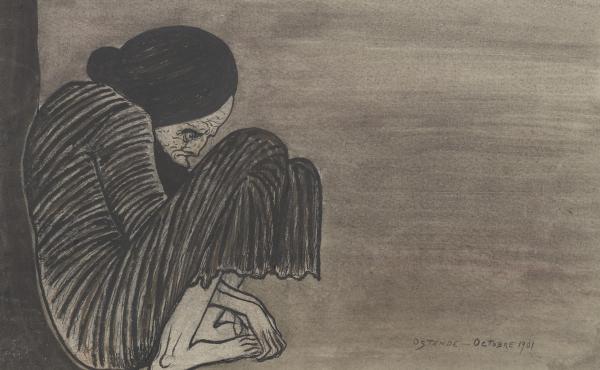In around 1900, the Belgian bourgeoisie mainly spoke and wrote in French, including in Ostend. That’s where Spilliaert grew up, above his father’s perfume store where he sold bottles with appealing names such as Fleur de la Flandre (Flower of Flanders) and Brise d'Ostende (Ostend Breeze). Moreover, within the Brussels artistic milieu, in which Spilliaert moved as of 1902, speaking French was de rigeur. This meant that when the young Spilliaert still wrote titles on his works, they were in French, such as Solitude, Misère and Le dernier regard.
Yet we know that Spilliaert also spoke Dutch, more specifically the Ostend dialect, the language of the sea. His friends, such as Floris and Oscar Jespers and Constant Permeke, sent him letters in Dutch, but at other times Permeke also communicated in French. Welstellende Menschen (Well-to-do People) is one of the few works by Spilliaert with an explicitly Flemish title, perhaps he wanted to emphasise the working-class or petty-bourgeois character?




